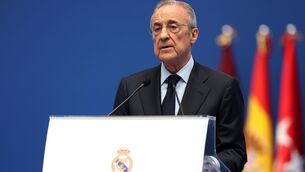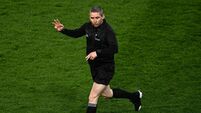Wed, 20 Nov, 2019 - 10:28
Daniel Storey
Daniel Storey asks if Mourinho will change for Spurs or if Spurs will change for Mourinho.
Already a subscriber? Sign in
You have reached your article limit.
Subscribe to access all of the Irish Examiner.
Annual €130 €80
Best value
Monthly €12€6 / month
Introductory offers for new customers. Annual billed once for first year. Renews at €130. Monthly initial discount (first 3 months) billed monthly, then €12 a month. Ts&Cs apply.
CONNECT WITH US TODAY
Be the first to know the latest news and updates
CourtsSoccerJose MourinhoPlace: EnglandPerson: MourinhoPerson: Daniel StoreyPerson: Jose MourinhoPerson: Mauricio PochettinoPerson: PochettinoPerson: Ossie ArdilesPerson: Gerry FrancisPerson: FrancisPerson: Christian GrossPerson: GrossPerson: George GrahamPerson: GrahamPerson: Glenn HoddlePerson: HoddlePerson: Martin JolPerson: Jacques SantiniPerson: JolPerson: Juande RamosPerson: RamosPerson: Harry RedknappPerson: RedknappPerson: Andre Villas-BoasPerson: Villas-BoasPerson: Tim SherwoodPerson: SherwoodPerson: Daniel LevyPerson: DanielLevySpursChairmanPA_large.jpgPerson: LevyPerson: Brendan RodgersEvent: Champions LeagueOrganisation: SpursOrganisation: TottenhamOrganisation: Manchester UnitedOrganisation: PortoOrganisation: ChelseaOrganisation: Leicester City















